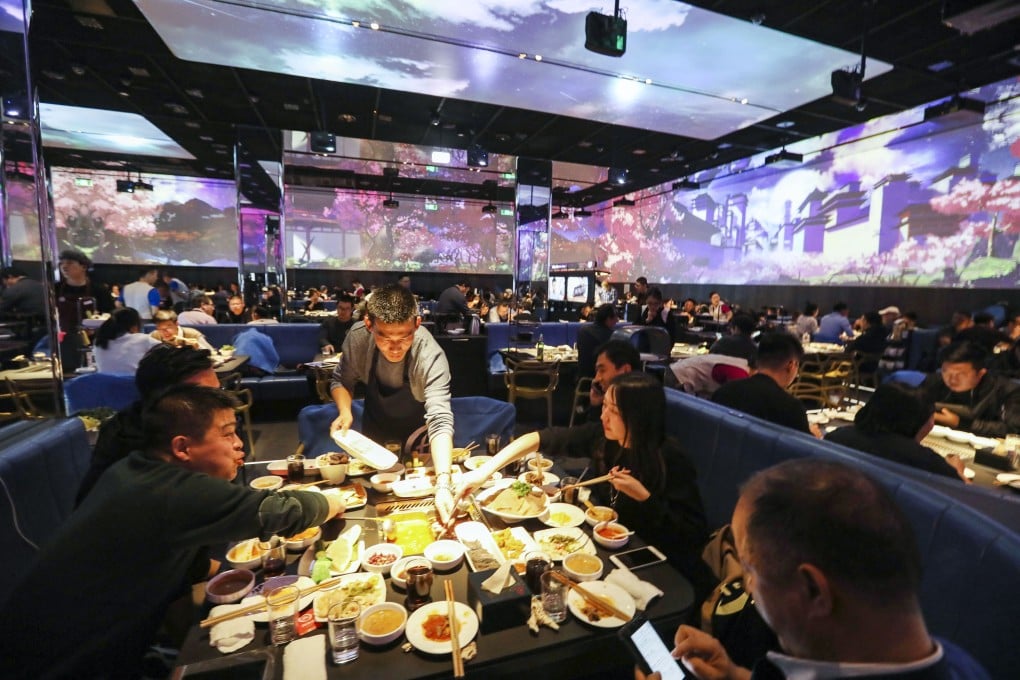Advertisement
Busy Haidilao hotpot business during China’s golden week holiday shows why restaurant operators are back in favour in stock markets
- Restaurant bookings expected to surge during the golden week holiday and Mid-Autumn Festival as Covid-19 restrictions are further relaxed
- Consumption rebound could give catering industry revenue a late push to match the level in 2019 before the year is out, analyst says
Reading Time:2 minutes
Why you can trust SCMP

China’s catering industry is expected to record a solid gain during the golden week holiday, underpinning a recovery in consumption that has powered the rally in shares of restaurant operators like Haidilao and Jiumaojiu.
Advertisement
Bookings, especially for private dining rooms, at many restaurants were full or almost full for the eight days to October 8, according to local media reports. Some of Haidilao International’s hotpot outlets have been fully reserved, it said.
The National Day holiday, when millions of residents are expected to throng local tourist spots, cinemas and shopping malls, and the momentum that comes with it, could help push the catering industry receipts closer to 2019’s before the year is out, an analyst said. China has stepped up efforts to further reopen the local economy after getting the country’s Covid-19 outbreak under control.
“Private room bookings were full at Haidilao’s Beijing Wangfujing branch, only a small number of seats in limited time slots are available in the common dining area,” a company official said in an email to the Post on September 29.
Catering receipts recovered 93 per cent in August to 362 billion yuan (US$53.1 billion), according to government data. Declines in those receipts have narrowed from year-ago levels since April, as economic recovery momentum helped shore up confidence in spending.
Advertisement
China’s economy rebounded 3.2 per cent in the June quarter, putting it on course for a full-year expansion. The historic slump around the Lunar New Year in February caused 500 billion yuan of lost sales, when about eight in 10 restaurants reported no business in traditionally the most lucrative period of the year for restaurant operators, according to the China Cuisine Association.

Advertisement